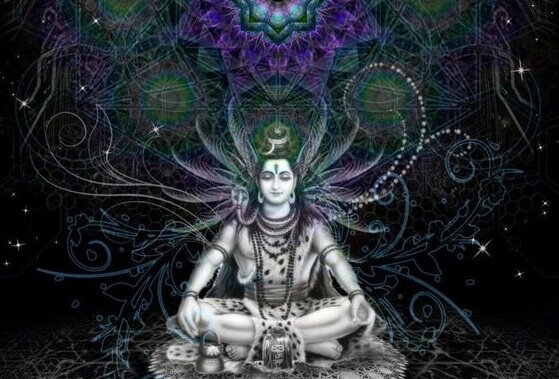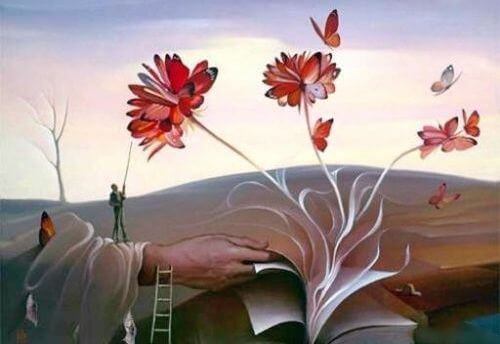7 Amazing Hindu Proverbs

Hindu proverbs boil down all the wisdom of that part of the world: thousands of years old and extremely rich. It’s a culture where mysticism and spirituality have always had a huge role.
Hindu culture is absolutely fabulous. It’s a wonderful mix of expressions that have come from a wide range of different nations. That’s why it’s such a vastly rich culture. It’s also why you can see this in all of its different cultural manifestations, including its proverbs.
Hindu culture also has Arabic, Buddhist, British, and Portuguese influences. There are the local cultures that have shaped it too, of course. That’s why Hindu proverbs are such a multicolored display of ways to look at life. Here are seven of them.
“What can a blind man see, even if he holds a lantern in his hand?”
-Hindu proverb-
1. Adversity in Hindu Proverbs
One of the most beautiful Hindu proverbs is about adversity. It goes like this: “There isn’t a tree in the world that the wind hasn’t shaken.” It’s such a beautiful metaphor that reminds you that no one can escape adversity. It’s completely unavoidable.

Bad times are like a wind that shakes the branches and tests their stability. What really stands out in this message is the fact that it doesn’t matter what kind of life you live, you’ll always be vulnerable to its attacks. But you shouldn’t see them as strange or unusual, because adversity is just part of life.
2. A Peaceful Heart
The topic of internal peace is one of the most common topics in Hindu proverbs. All its religions and philosophies talk a lot about this balanced state where you become calm, and come to a place of peace with yourself and the world.
That’s why there’s a Hindu proverb that goes: “A peaceful heart sees a celebration in any village.” What it means is that it all starts from within.
If your spirit is peaceful, you’ll look at the outside world with a positive perspective. In the same way, internal wars will make you see everything much darker.
3. Reading and Action
Here’s what one Hindu proverb says about reading: “It is always good for the ignorant to read books. It is even better when they retain what they have read. It is better still when they have understood it. But it is best when they do all those things, and put their hands to work.”
This time the message is about giving equal importance to learning and taking action based on your knowledge. It sets up a scale that starts with reading. Then it moves on to internalizing what you’ve read. And it finally ends with taking action based on what you now know.

4. Generosity of the Soul
Most of these philosophies line up in a similar place. They all talk about solidarity and brotherliness as the supreme values. These are the values that make us into one race dealing with the same hardships, with the same destiny.
That’s why there’s one Hindu proverbs that goes: “Trees refuse no one their shade, not even the woodcutter.” It’s a poetic way of saying that this task of helping people even includes the people who’ve hurt you.
5. The Path to Happiness
There aren’t many easy pathways to happiness. But there’s no doubt that one path is to do noble things for other people. There’s a Hindu proverb that has this same message. It says: “True happiness consists of making other people happy.”
Other people’s happiness always play a part in personal happiness. It’s much easier to feel good about life and the world when the people around you are happy. No one who wants to harm other people can ever really achieve it, either.

6. Reaping and Sowing
Everything in life is linked together. Things happen because there’s something that leads them to happen. But most of us tend to see all these different parts of life as isolated incidents. There are so many times when we don’t notice that we’re just reaping what we’re sowing.
There’s also a Hindu proverb that makes a reference to this. “The good you did yesterday will bring you happiness when you wake.” This is about the idea that being good to other people will bring you personal happiness.

7. The Ocean and a Drop of Water
The personal and universal aren’t exclusive concepts. They’re always deeply linked. They have a mutual influence on each other, and you can’t pull them apart. That’s why there are always so many personal elements in universal things. Of course, personal things are also their own universe.
That’s exactly what one Hindu proverb says. “God too hides himself in the ocean within a drop of water.” You shouldn’t take the word “God” literally in this quote. What it’s really talking about is a “higher power,” not a specific god.
In the end, all these Hindu proverbs have two things in common: beauty and depth. Hindu culture also shows itself off in a ton of different ways, as you can see in these fascinating statements that can help magnify your spirit.
All cited sources were thoroughly reviewed by our team to ensure their quality, reliability, currency, and validity. The bibliography of this article was considered reliable and of academic or scientific accuracy.
- De Acosta, J. (1995). Vida religiosa y civil de los indios:(Historia natural y moral de las Indias) (Vol. 83). UNAM.
- Guénon, R. (1945). Introducción general al estudio de las doctrinas hindúes. Losada.
- Junceda, L. (1998). Diccionario de refranes, dichos y proverbios. Espasa-Calpe.
This text is provided for informational purposes only and does not replace consultation with a professional. If in doubt, consult your specialist.








